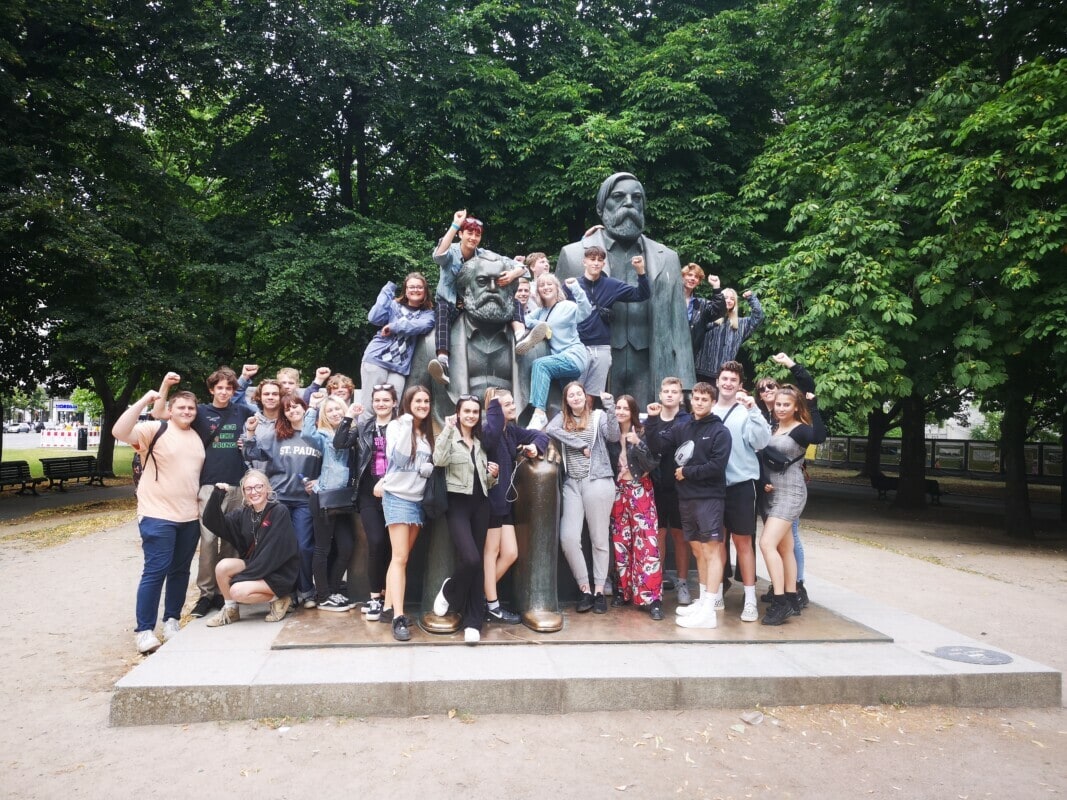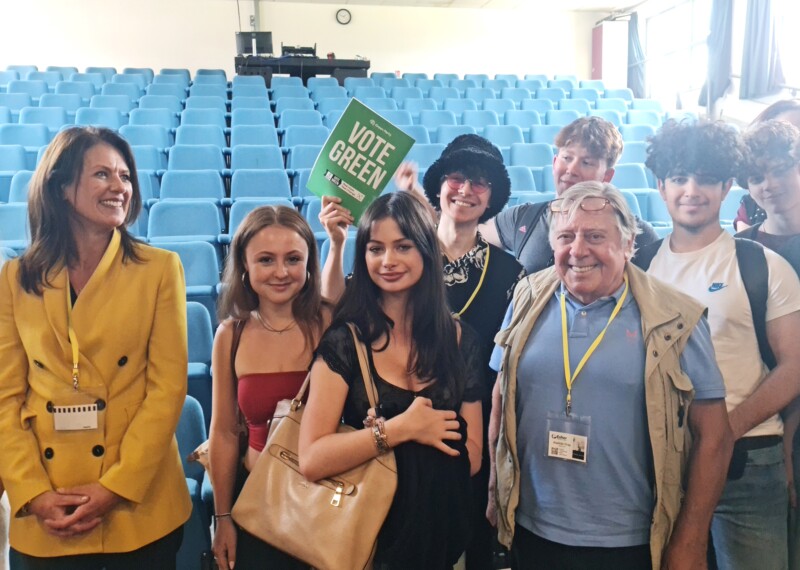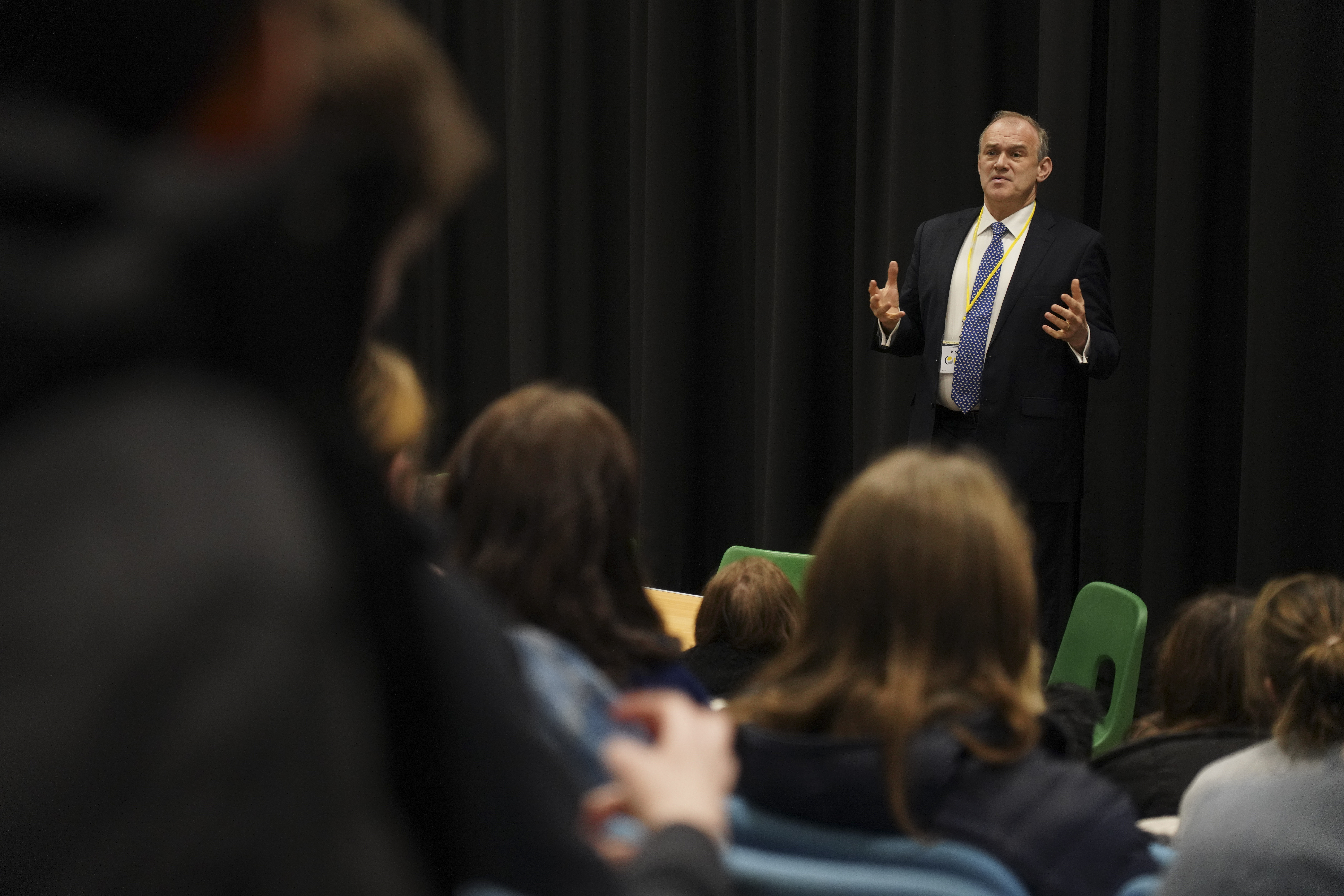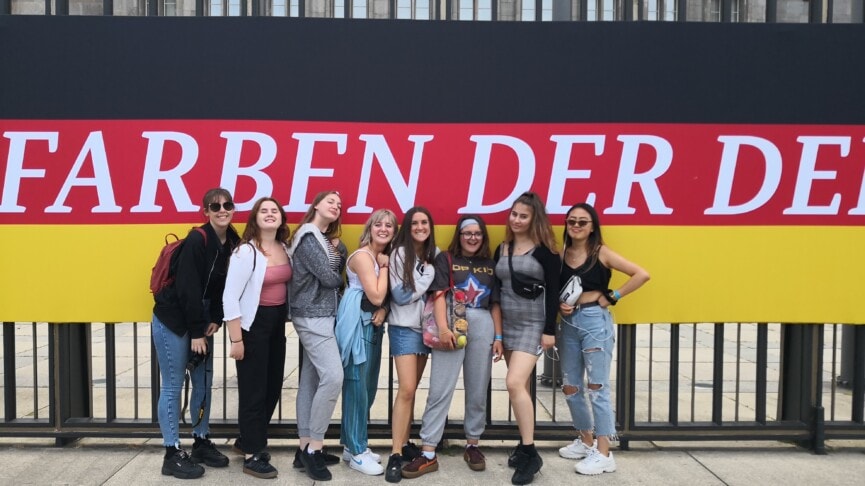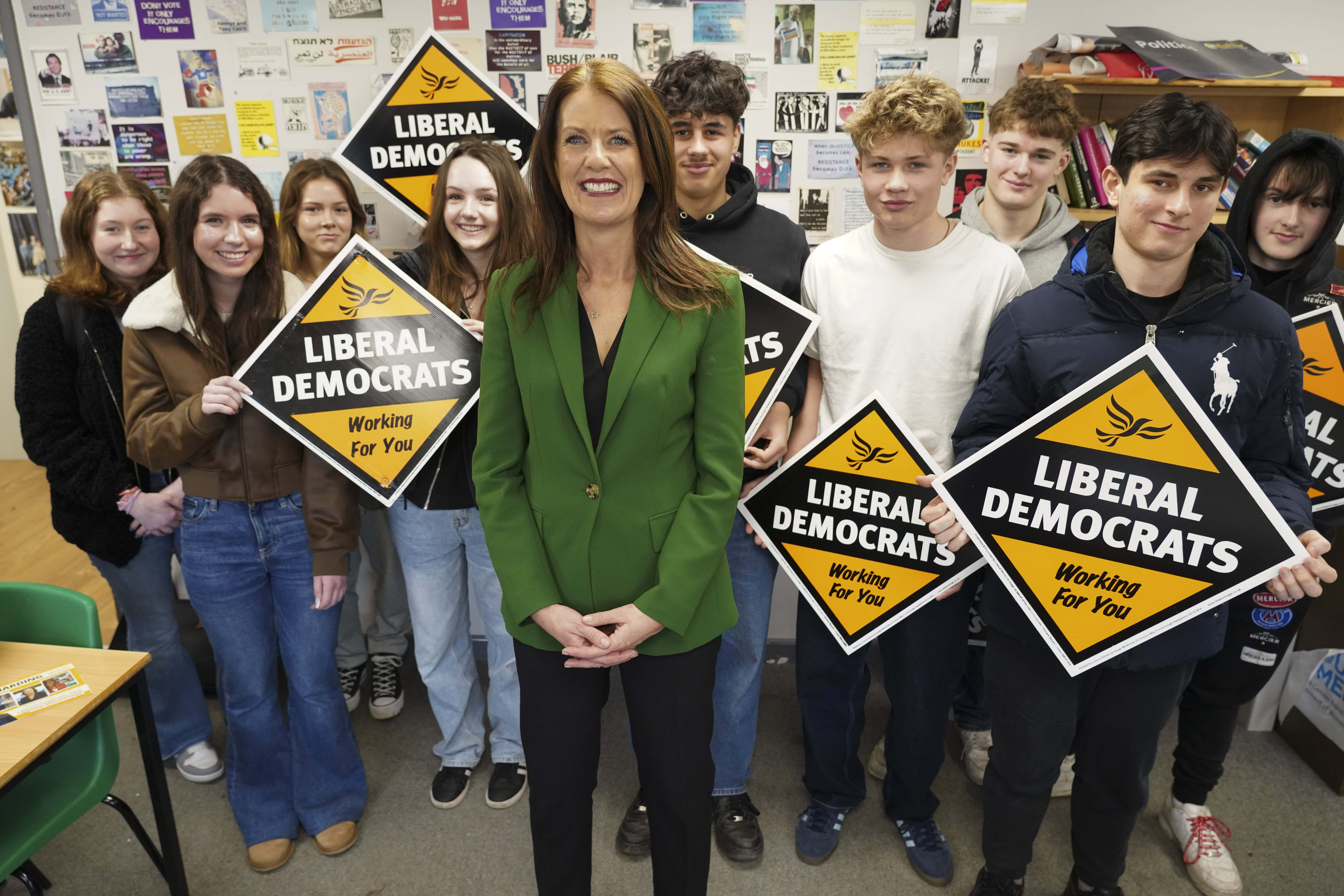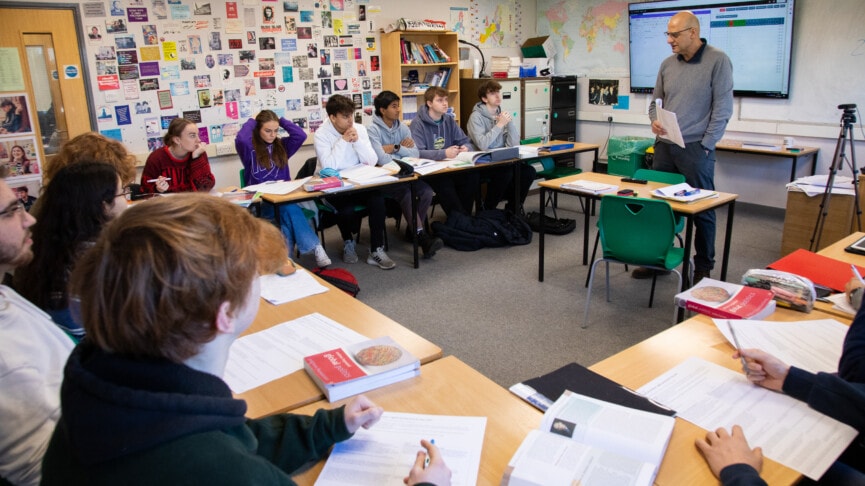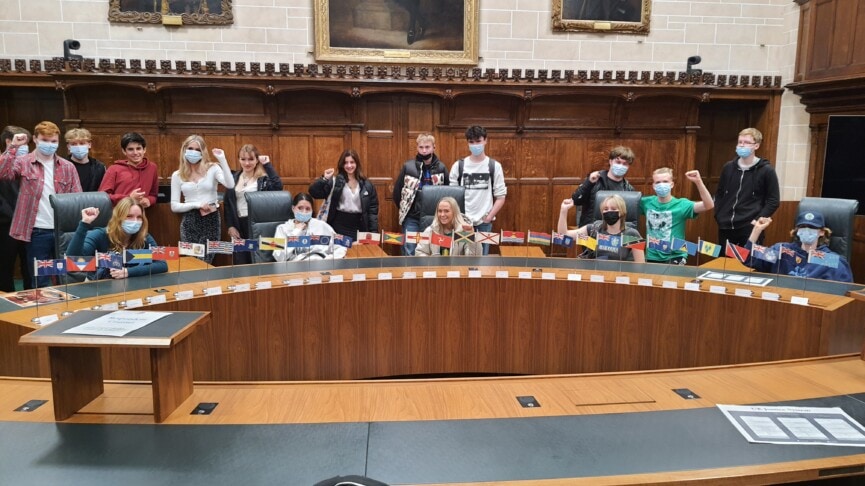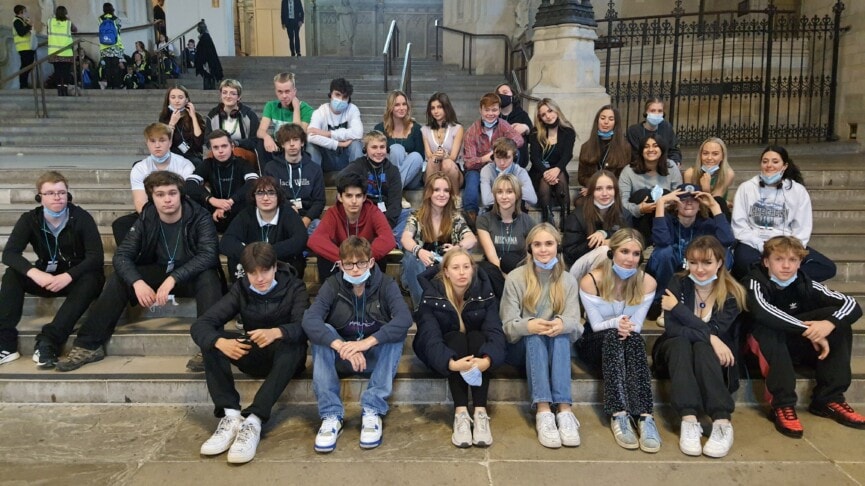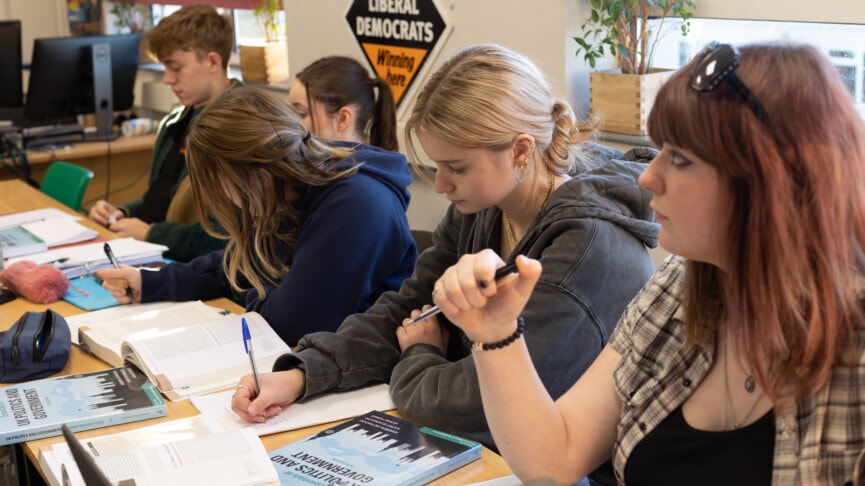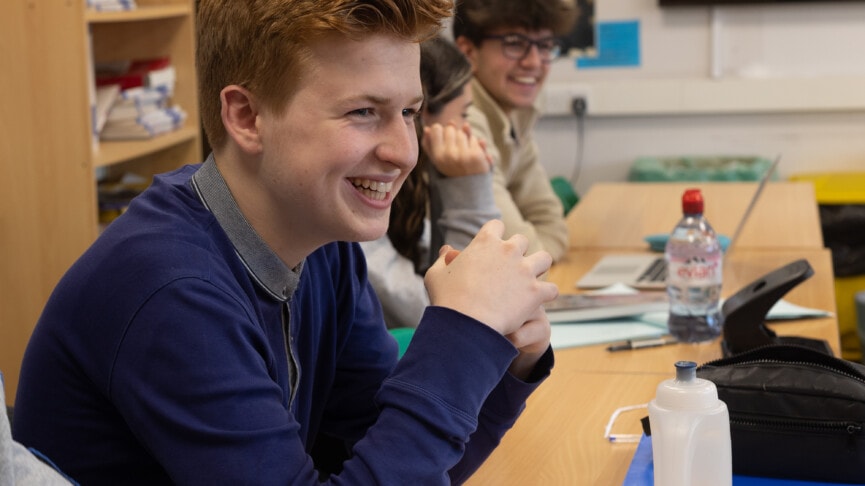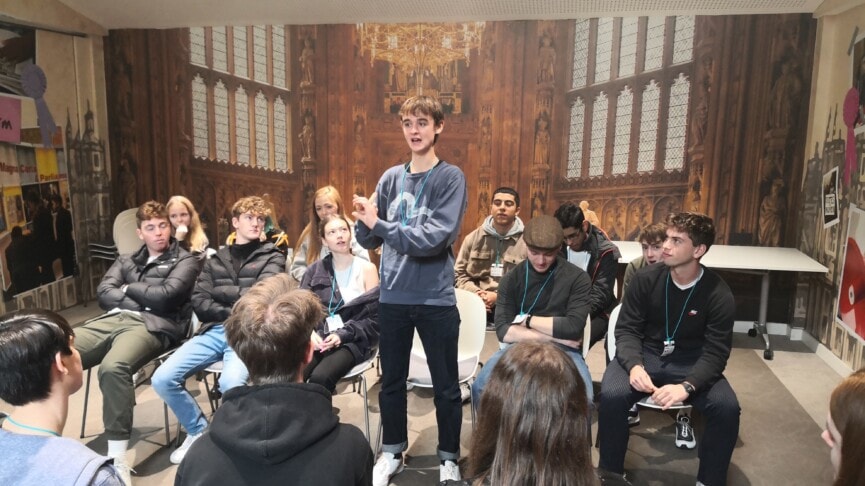Overview
Politics is a dynamic subject; in that you will learn about topics as they happen and continue to change. The topics we cover in the course are always ‘in the news’. It may also mean that you finally understand the issues being raised on programmes such as Newsnight and Dispatches!
William Sheward, a Professor at the University of Winchester has said “[Studying politics] encourages [people] to think critically and knowledgeably about contemporary issues and their historical contexts, which in turn allows them to be able to think for themselves as informed citizens.”
We would like to believe that understanding how governments make decisions, and the various domestic and global influences on those decisions, could help us to make better choices for ourselves and become more active citizens.
Entry Requirements
In addition to the College Entry Requirements, to qualify for this course you will also need to achieve a minimum of:
• Grade 4 in GCSE English Language
Course Details
This A Level course offers both breadth and depth of study of current political issues and institutions. The course is taught over two years and the specification contains three distinct parts:
1) UK Government & Politics (47% of the qualification)
UK Politics: This part of the course is taught in the first year; you will be introduced to the political system in the UK. This includes a study of the strengths and limitations of British democracy and the examination of different proposals to increase participation, and the policies and beliefs of political parties and how elections are contested, including voting systems, voting behaviour and the media. It also covers the evaluation of the roles and effectiveness of institutions such as the cabinet and Parliament, the judiciary, and the constitution.
Political ideologies: four key political ideologies will be introduced and evaluated in the course: conservativism, liberalism, and socialism, in addition to one (the fourth) from the following choice: anarchism, ecologism, feminism, multiculturalism or nationalism. Our centre covers ‘anarchism’ as the additional ideology.
Unlike most school and colleges that focus on US Politics, we cover Global Politics (International Relations) in the second year. Studying Global Politics will give you an opportunity to develop an understanding of international relations and the global dimensions of political activity. You will explore some of the topical global issues that affect all of us such as globalisation, climate change, human rights, wars, conflict and cooperation. The course will also critically examine the main theories of international relations as well as the roles and significance of institutions of global governance or regional such as the European Union, the UN, G-7/20, NATO, the IMF, World Bank and the WTO.
Assessment
Assessment is by three written exam papers. The exam papers include a range of different questions such as source-based questions, extended essay, and some shorter questions. The skills that are assessed in the papers are analysis, evaluation and written communication (essay writing). Note that the three papers do not necessarily overlap with the three themes above.
Subject Combinations
This subject combines well with others, such as English, Philosophy, Sociology and History, where there is an emphasis on clear written communication, evaluation and analysis. In addition, there are some subjects, such as Economics, Business, Film Studies, that include an element of political knowledge or where an awareness of political analysis and concepts is useful.
University Destinations
Politics A Level is a highly respected qualification, with 90% of our students progressing onto University.
Here are some typical University Destinations that our Politics A Level students go on to. Click on a destination to see some examples of courses they have taken;

University of Birmingham
Typical courses: Economics and Politics / Politics and International Relations with Year Abroad /Politics

University of Sussex
Typical courses: History / Criminology and Sociology /Politics and International Relations

Cardiff University
Typical courses: Computer Science / French and English Literature (4 years) / Journalism, Communications and Politics

University of Exeter
Typical courses: Ancient History and Archaeology with Study Abroad / Politics /Economics with Industrial Experience

Loughborough University
Typical courses: Politics and International Relation/ History and International Relations (with placement year)
The University of Edinburgh
Typical courses: Social anthropology and politics / International Relations

Newcastle University
Typical courses: Politics and History / International Business Management with Placement
Careers
Many of our students go on to study Politics or related degrees, such as International Relations, at university. Some may eventually work in an area of political life but for the majority a qualification in Politics provides a range of intellectual skills that are transferable to a variety of employment and higher education opportunities.
For example, the skills and knowledge developed in the Politics A Level provide a good basis for studying law, and a number of our students go on to a Law degree and a legal career.
FAQs
Do I need to have any previous knowledge of Politics in order to take it at A Level?
The course assumes no previous knowledge of the subject. However, during the course you will be expected to read extensively on the topics, take an interest in politics, and access resources, extending beyond the classroom and the textbooks. For example, using the media to follow the latest developments and the internet to undertake political research.
What extra support/enrichment activities are on offer?
In previous years we have offered students day-trips to Parliament, Europe House, the Supreme Court and other institutions. We also try to arrange a residential visit to Berlin, looking at the issue of the Cold War and transition from authoritarian to a democratic regime. We used to visit Brussels to discover more about the politics of the European Union, and The Hague to witness the work of international courts and tribunals. However, the changing nature of the UK-EU relations and the intensity of the course make this trip less likely to continue.
In addition, we have an extensive programme of visiting speakers from political parties, pressure groups and other organisations, including the media, who present and discuss a range of political topics. We also arrange cultural activities, such as theatre visits, where there is an obvious political dimension.
